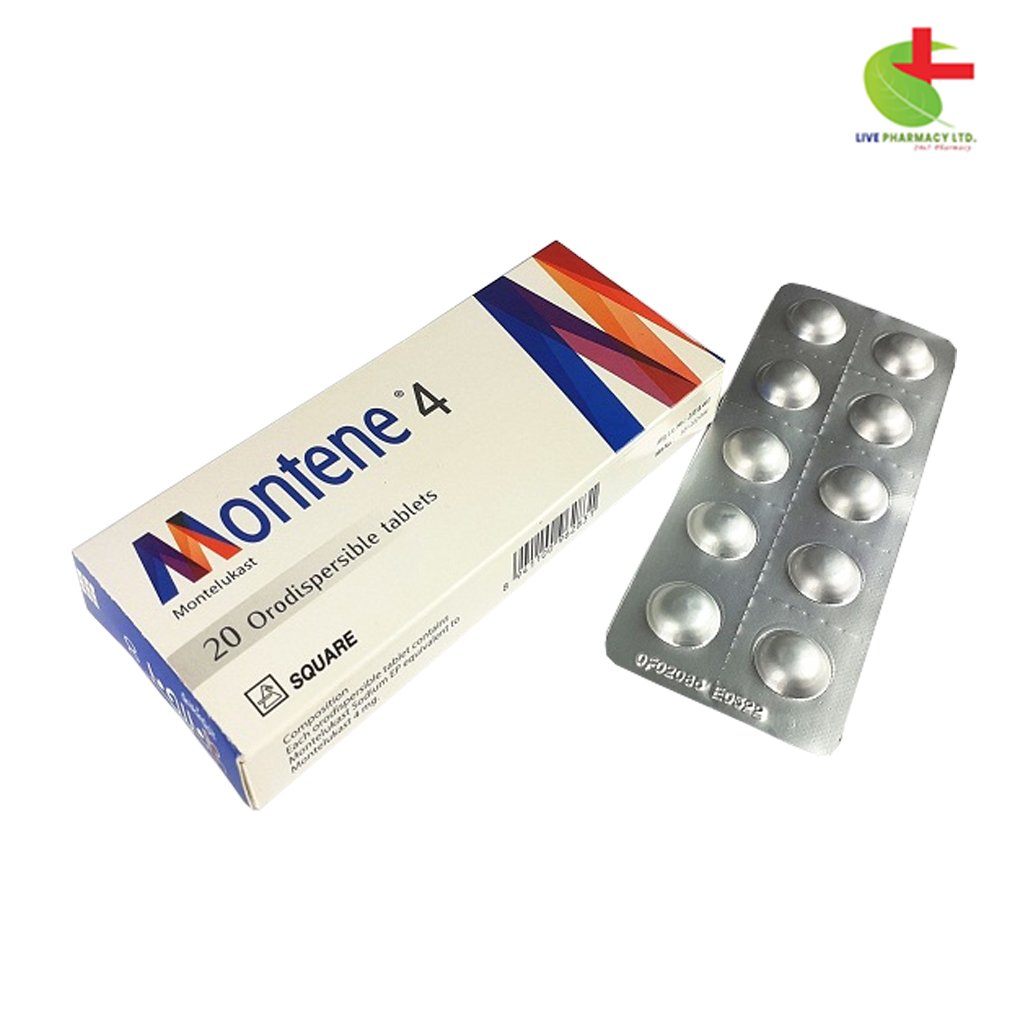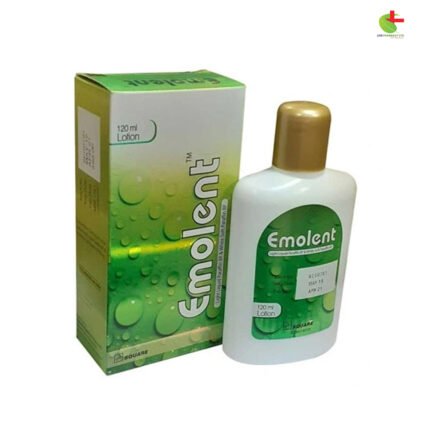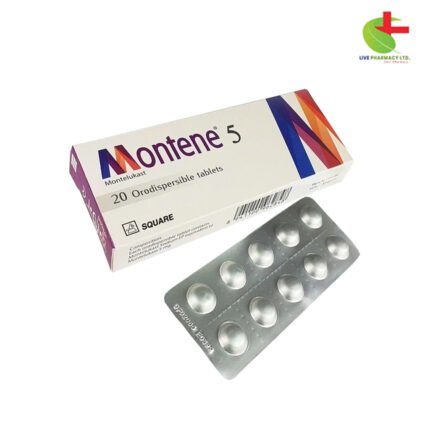Montene 4
70.00৳ Strip
- Montene offers relief for asthma and allergic rhinitis sufferers.
- Active component Montelukast targets and blocks leukotriene receptors, easing airway constriction and inflammation.
- Available in tablet and oral granule forms for convenient administration.
- Effective prophylaxis and chronic treatment for asthma, as well as acute prevention of Exercise-Induced Bronchoconstriction (EIB).
- Well-established safety profiles across various age groups make Montene a trusted ally in managing respiratory conditions.
 Brand
Brand
|
Square Pharmaceuticals PLC |
|---|---|
 Generics
Generics
|
Montelukast Sodium |
Indications
Montene serves as a solution for various conditions:
- Prophylaxis and ongoing treatment of asthma
- Acute prevention of Exercise-Induced Bronchoconstriction (EIB)
- Alleviation of symptoms related to Allergic Rhinitis (AR) including both seasonal and perennial forms.
Pharmacology
Montelukast, the active ingredient in Montene, acts selectively and orally to antagonize leukotriene receptors, particularly the CysLT1 receptor. These receptors are involved in the pathophysiology of asthma and allergic rhinitis. By inhibiting cysteinyl leukotrienes (LTC4, LTD4, LTE4), which are released from various cells including mast cells and eosinophils, Montene helps alleviate airway edema, smooth muscle contraction, and inflammatory processes associated with these conditions.
Dosage & Administration
For adults and adolescents with asthma or seasonal allergic rhinitis, a daily dose of Montelukast 10 mg tablet is recommended. Pediatric patients aged 6 to 14 years typically take Montelukast 5 mg tablets daily, while those aged 2 to 5 years may take 4 mg tablets. For infants aged 6 months to 5 years, Montelukast 4 mg oral granules are administered once daily, either directly or mixed with food or water.
Special Populations
Montene is generally safe for patients with hepatic or renal insufficiency, as well as the elderly, without requiring dosage adjustments.
Interactions
Montene has been used concomitantly with various drugs used in asthma treatment without notable adverse reactions. Although phenobarbital may decrease Montene’s effectiveness, no dosage adjustments are typically necessary. Monitoring is advised when potent cytochrome P450 enzyme inducers are co-administered.
Contraindications
Montelukast is contraindicated in individuals with hypersensitivity to any of its components.
Side Effects
Common side effects may include diarrhea, fever, headache, nausea, and skin reactions. Less common side effects encompass neurological and behavioral changes.
Pregnancy & Lactation
While Montelukast crosses the placenta in animal studies, its safety during pregnancy hasn’t been extensively studied in humans. Caution is advised during lactation due to potential excretion in breast milk.
Precautions & Warnings
Montene should not be used for acute asthma attacks. Patients should have rescue medication available, and the dose of inhaled corticosteroids should be adjusted under medical supervision. Montene is not intended as monotherapy for exercise-induced bronchospasm.
Overdose Effects
Overdose reports generally reflect the drug’s known side effects. Usual supportive measures are recommended in case of overdose.
Therapeutic Class
Montene belongs to the class of leukotriene receptor antagonists.
Storage Conditions
Store Montene in a cool, dry place below 30°C, shielded from light and moisture, and keep it out of children’s reach.
Chemical Structure
Montelukast Sodium’s chemical structure is represented by the molecular formula C35H36ClNO3S.
Common Questions about Montene 4 mg Tablet
- Montene 4 mg DT is a selective and orally active leukotriene receptor antagonist.
- It is commonly used to treat asthma or allergic rhinitis by blocking leukotrienes, promoting open airways and easier breathing.
- Effects are typically observed within 1-3 hours post-administration, with duration lasting around 24 hours.
- Montene 4 mg DT may be taken with or without food as directed by a healthcare professional.
- Missed doses can be taken as soon as remembered, with doubling up on doses not recommended.
General Instructions
- Follow your doctor’s prescription precisely.
- Do not alter your dosage or discontinue asthma medication without consulting your doctor.
- Seek medical attention if symptoms worsen rapidly or if you suspect your medication is ineffective.
- Avoid triggers for asthma attacks.
- Consult your doctor if pregnant or breastfeeding to determine the appropriateness of Montene use.













Reviews
There are no reviews yet.